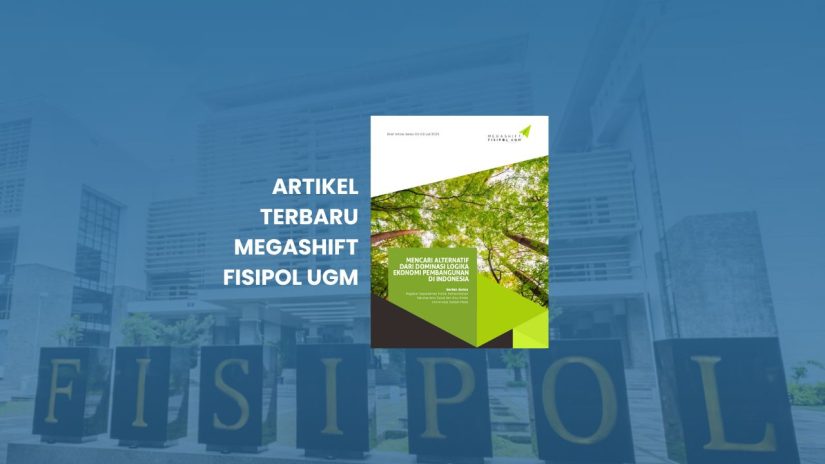
Megashift FISIPOL UGM has released a new article titled “Seeking Alternatives to the Dominance of Economic Logic in Indonesia’s Development.” The piece offers a critical reflection on Indonesia’s national development agenda, which has long been centered on economic growth, investment, and macro-financial indicators.
The article emphasizes the importance of pursuing alternative development approaches that prioritize social welfare and environmental sustainability. Rather than relying solely on economic logic, it advocates for an integrative approach that incorporates social values, local wisdom, and participatory democracy into policy formulation.
One of the most compelling parts of the article is its critique of the hegemony of neoliberal approaches, which tend to position markets as the central driver of development while sidelining issues of justice and ecology. The author stresses that the success of development should not only be measured by growth figures, but also by the fair distribution of benefits, improvements in quality of life, and long-term environmental sustainability.
This article serves as an important reference for academics, students, and policymakers seeking new ways to imagine a development model that is more just, inclusive, and sustainable.
The full article is available on the official Megashift FISIPOL UGM website.
Relevant SDGs (Integrated in the Narrative)
This article aligns with several Sustainable Development Goals (SDGs):
-
SDG 8 – Decent Work and Economic Growth: by questioning growth-centered models and seeking more equitable alternatives.
-
SDG 10 – Reduced Inequalities: by emphasizing fairer distribution of development benefits.
-
SDG 11 – Sustainable Cities and Communities: by advocating participatory and inclusive development models.
-
SDG 12 – Responsible Consumption and Production: by highlighting the need to shift from purely market-driven growth to sustainability-oriented approaches.
-
SDG 13 – Climate Action: by calling for ecological sustainability as part of development success.
-
SDG 16 – Peace, Justice, and Strong Institutions: by stressing participatory democracy and inclusive governance in shaping policy.
